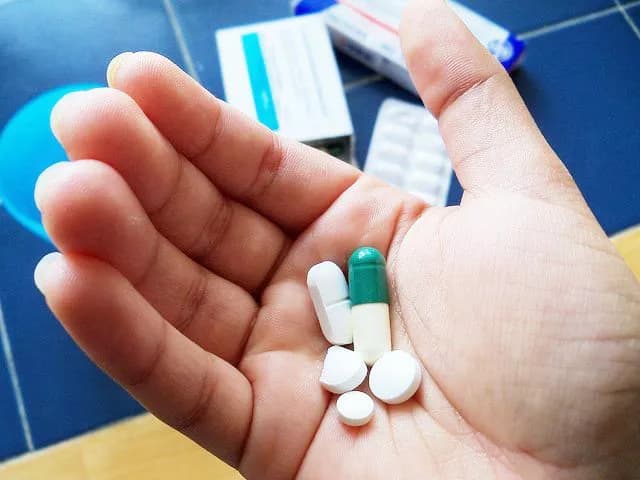
Commonly Prescribed Psychiatric Medicines May Influence Decisions for Causing Harm
A research study conducted by scientists at the University College of London and Oxford University finds that serotonin-enhancing antidepressants increased aversion to inflicting harm on oneself or others, while a dopamine-increasing drug commonly used for Parkinson’s disease decreased altruistic tendencies.
Human beings usually operate on a moral code of avoiding harm to others. However, in individuals with anti-social tendencies, the moral core is diminished/disturbed, which reportedly forms the basis for aggressive behavior. Serotonin and dopamine are both known to promote aggressive behavior, and the current study was undertaken to understand the effect of drugs that enhance their levels.
In this research study, a total of 175 healthy adults were recruited. This was a randomized study in which 170 trials were conducted. The study design was as follows:
- 86 participants received the serotonin enhancer or placebo while the other 89 received the dopamine enhancer or placebo.
- The subjects were paired into deciders and receivers.
- In each pair, the decider and receiver were kept anonymous.
- A decider chose how many electric shocks (bearable) that the receiver got.
- The decider was also to choose the number of shocks to himself/herself.
- Irrespective of who got the electric shock, the decider gained financially.
The results showed that:
- People taking placebo were prepared to pay more to prevent shock to others (35p per shock to avoid shock to themselves Vs 44p for others).
- Those on serotonin-reuptake inhibitors (anti-depressants) were willing to pay 60p per shock to avoid shock to themselves and 73p per shock to avoid harm to others; they delivered 30 fewer shocks to themselves and 35 fewer shocks to others than placebo-treated subjects.
- The participants on the dopamine-enhancing drug were willing to pay 35p per shock to avoid harming themselves as well as others; they delivered 10 more shocks to others for financial gain than the placebo-treated subjects, indicating that dopamine-enhancing drugs made healthy people more selfish.
- Those on dopamine-enhancing drugs also took less time to make decisions.
- Neither drug influenced the physical perception of pain in participants.
- The responses observed with the drugs was dose dependent.
The lead author of the study, Dr. Molly Crockett said in the Press Release of the American Association for the Advancement of Science, "Our findings have implications for potential lines of treatment for antisocial behavior, as they help us to understand how serotonin and dopamine affect people's willingness to harm others for personal gain. We have shown that commonly prescribed psychiatric drugs influence moral decisions in healthy people, raising important ethical questions about the use of such drugs.”
The participants in the study were healthy, as opposed to the real world where people take the drugs used in this investigation for the treatment of conditions. Whether these drugs have similar, different, or more pronounced effects on patients compared to healthy subjects remains to be seen. In the authors’ opinion, “These distinct roles of serotonin and dopamine in modulating moral behavior have implications for potential treatments of social dysfunction that is a common feature as well as a risk factor for many psychiatric disorders.”
Written by Mangala Sarkar Ph.D.
Primary References:
Commonly prescribed drugs affect decisions to harm oneself and others. (n.d.). Retrieved July 6, 2015, from http://www.eurekalert.org/pub_releases/2015-07/ucl-cpd062915.php
Crockett, M., Siegel, J., Kurth-Nelson, Z., Ousdal, O., Story, G., Frieband, C., . . . Dolan, R. (2015). Dissociable Effects of Serotonin and Dopamine on the Valuation of Harm in Moral Decision Making. Current Biology.
DOI: http://dx.doi.org/10.1016/j.cub.2015.05.021
Additional References:
- Sachdeva, S., Iliev, R., Ekhtiari, H., & Dehghani, M. (2015). The Role of Self-Sacrifice in Moral Dilemmas. PLOS ONE, 10(6), E0127409-E0127409. DOI: 10.1371/journal.pone.0127409
- Raine, A., & Yang, Y. (2006). Neural foundations to moral reasoning and antisocial behavior. Social Cognitive and Affective Neuroscience, 1(3), 203-213.
- Seo, D., Patrick, C., & Kennealy, P. (2008). Role of serotonin and dopamine system interactions in the neurobiology of impulsive aggression and its comorbidity with other clinical disorders. Aggression and Violent Behavior, 18(5), 383-395.
Related Articles
Test Your Knowledge
Asked by users
Related Centers
Related Specialties
Related Physicians
Related Procedures
Related Resources
Join DoveHubs
and connect with fellow professionals

0 Comments
Please log in to post a comment.